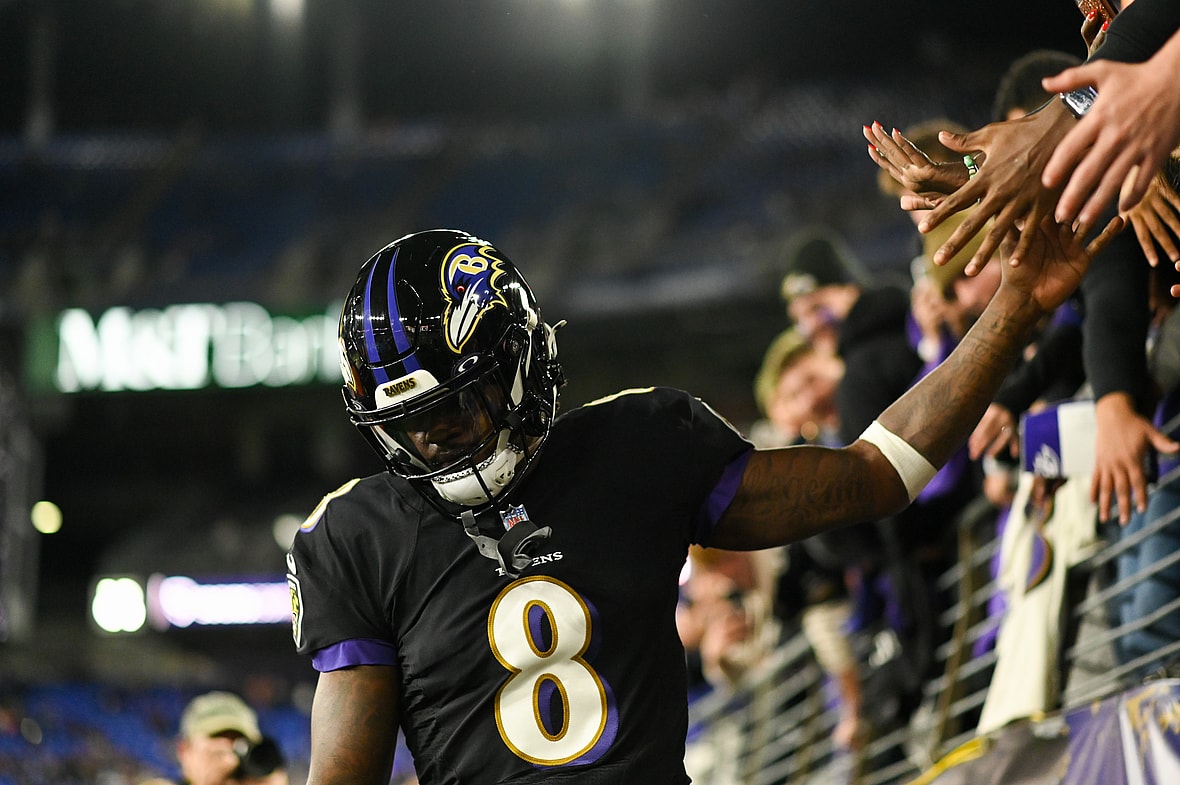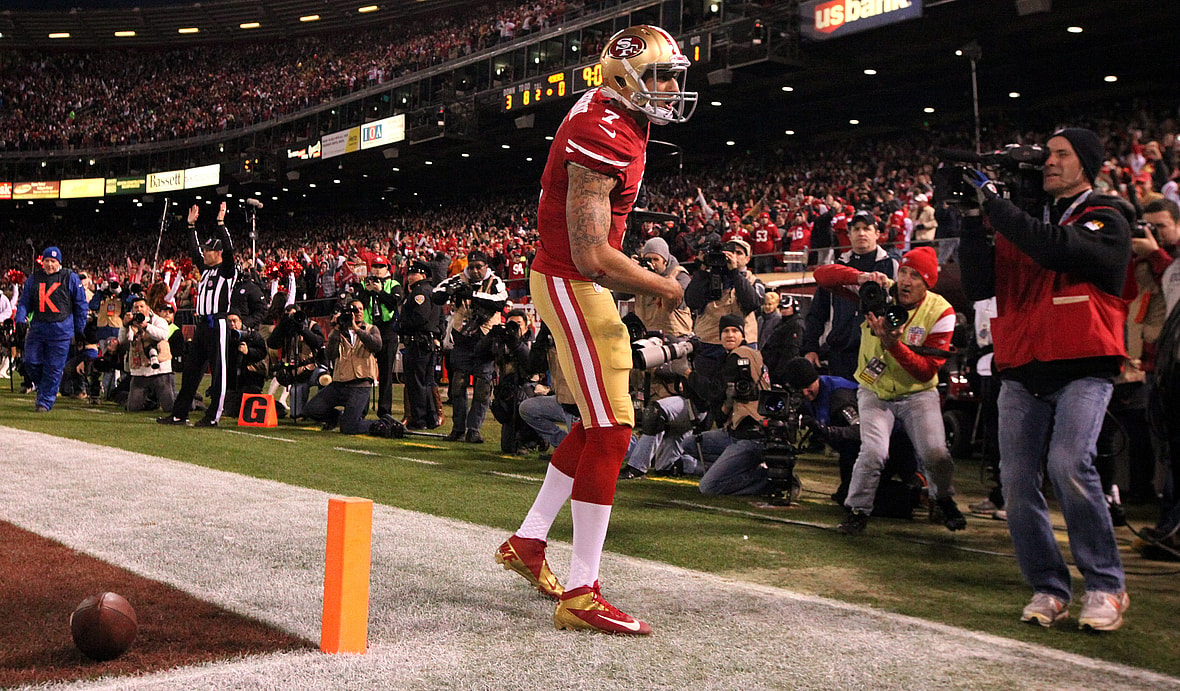Despite teams being able to make offers to Lamar Jackson this offseason, the market for the superstar quarterback has quickly, and shockingly, shrunk since he officially became available.
After weeks of speculation, the Baltimore Ravens finally slapped their franchise tag on starting QB Lamar Jackson. However, instead of using an exclusive tag, the Ravens chose to make the tag non-exclusive. This means that rival teams around the NFL can visit the one-time MVP and make bids for his services on the free-agent market starting next week.
It was a surprising decision, but not one that was completely unexpected since there reportedly has been little movement toward the team and player actually finalizing a long-term pact.
Related: Bold predictions for 2023 NFL free agency – Destinations for over 50 top players
The chance to sign a former league MVP with many prime seasons ahead truly is a once-in-a-generation moment. It just does not happen. Daniel Jones coming to terms on a massive $160 million extension with the Giants is perfect proof that even middle-of-the-road quarterbacks have immense value in the NFL, let alone elite talents at the position.
It is a rare opportunity you would assume many organization’s around the league would leap at. Since nearly a dozen teams could use QB upgrades and it is arguably the most important position in sports. Yet, with the mercurial star available, the market for his services immediately shrunk in the hours after the news.
It was a shocking shift in interest that has an uncomfortable vibe of collusion and calls back to the unusual end of Colin Kaepernick’s NFL career.
Vibes of collusion in Lamar Jackson free agent market

For teams interested in signing Lamar Jackson away from the Baltimore Ravens, the franchise tag hovering over him would mean that organization would have to fork over two first-round picks as compensation. Without a doubt, that is a steep price for a player that is already looking for a historic long-term contract.
However, that price is no longer unusual after the flurry of QB trades last season. Russell Wilson fetched the Seattle Seahawks two first-round picks and more from the Broncos in a deal last year. Meanwhile, DeShaun Watson landed the Houston Texans three first-round selections from the Cleveland Browns. Considering the market rate for superstar signal-callers, any team interested in signing Lamar Jackson would not be giving up the proverbial king’s ransom in a potential signing.
However, soon after the Ravens’ decision, ESPN’s Jeff Darlington reported the Miami Dolphins would not be involved in the Jackson market. Fellow NFL insider Kimberley A. Martin revealed the Washington Commanders would also likely pass on a pursuit. The Carolina Panthers and Atlanta Falcons also reportedly won’t jump into the Lamar Jackson sweepstakes.
While Miami not being involved isn’t a shocking revelation, the three other organizations all desperately need a star QB, and their lack of interest is peculiar. While proving collusion between teams is nearly impossible, it is too coincidental for Jackson’s market to shrink by four teams soon after he became available. Especially after weeks of speculation that he could garner the most interest in NFL free agency if available.
The quick change of interest seems eerily similar to that of former San Francisco 49ers star Colin Kaepernick.
The uncomfortable connections to Colin Kaepernick

The storyline that brought Colin Kaepernick’s NFL career to a sudden halt in 2016 is well documented. His decision to protest against certain ills of society and put a spotlight on major social issues by kneeling for the national anthem during games was divisive.
It rubbed some fans, NFL owners, and even politicians the wrong way, and many suspect that stance led to the market for his services drying up after he was released from San Francisco.
See exclusive Sportsnaut videos on Instagram, YouTube, and TikTok.
The fact that he never received another chance, despite being in his athletic prime and playing a premium position was unusual. Especially when equal or lesser quarterbacks received opportunities at that time. It added to the long-time narrative that NFL teams were open to working together if it benefitted them. In this case, it was to remove a player that brought the sort of political attention they did not want to bring to their league.
In the case of Lamar Jackson, shrinking his market would be to avoid a second player from getting a fully guaranteed contract after Watson landed the uncommon pact last offseason. Fully guaranteed deals in the NFL are a complete rarity, and the contract reportedly wrangled some rival owners.
Lamar Jackson’s shrinking market could all be coincidental and is no indicator of actual collusion among NFL teams. However, in a league where success is completely based on QB play, teams passing on economic and standings success to attain a game-changer talent at the position creates some uncomfortable questions for the NFL.